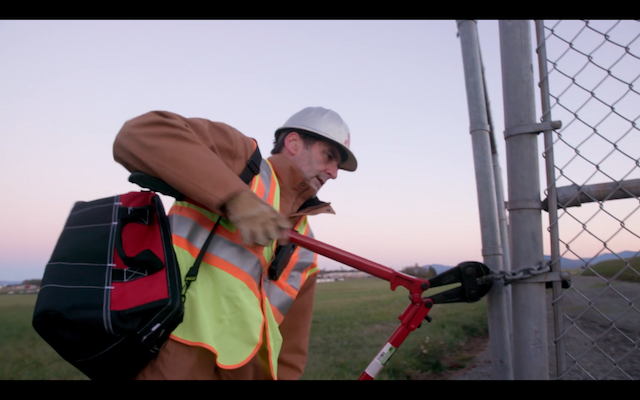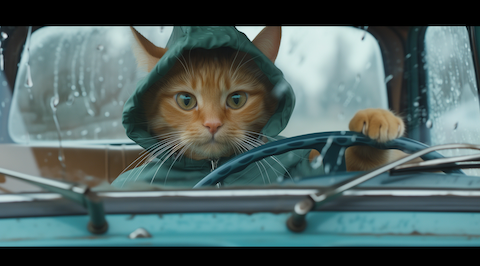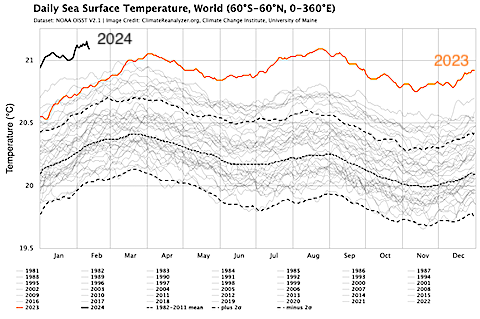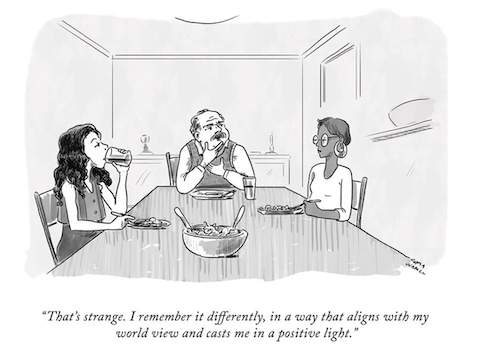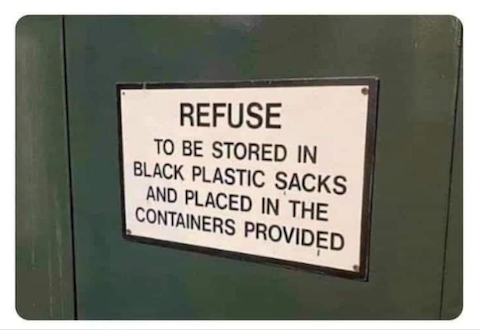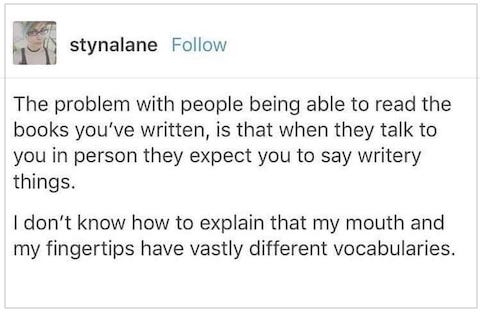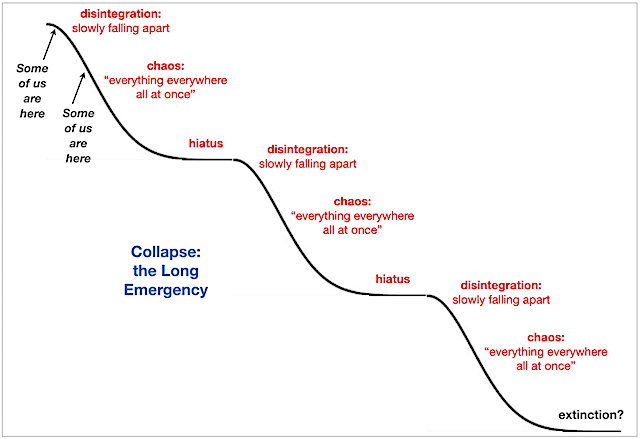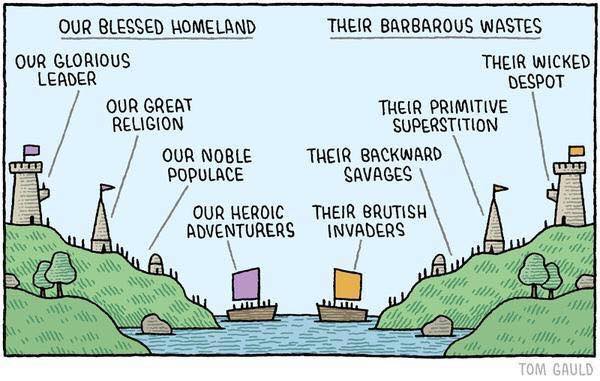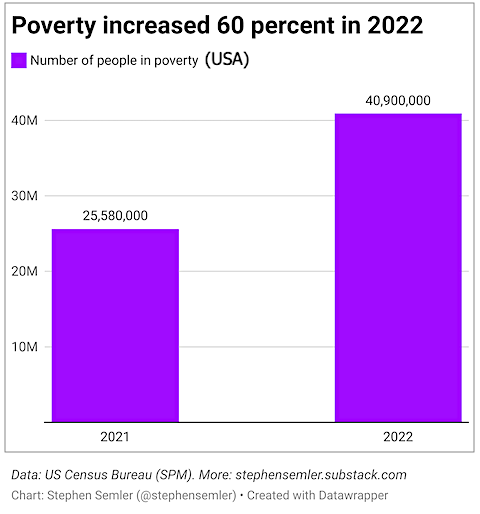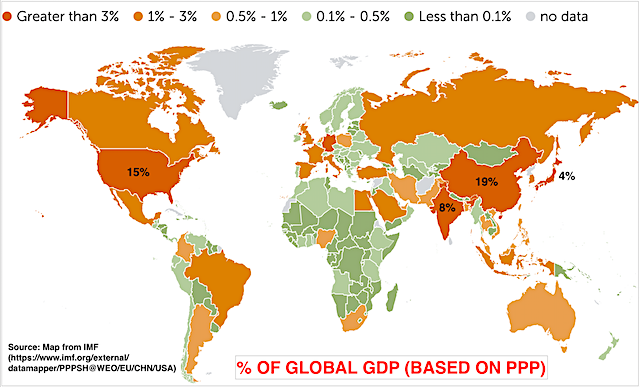This is #27 in a series of month-end reflections on the state of the world, and other things that come to mind, as I walk, hike, and explore in my local community.
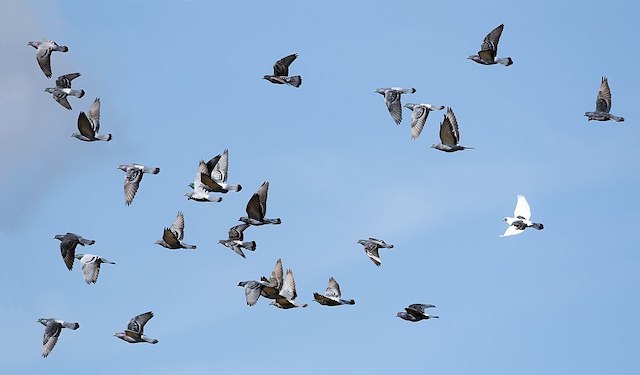
photo by Laitche at wikimedia, CC-BY-SA 4.0. Taken at Daisen Park, Osaka, Japan
Today I was watching a large flock of pigeons — perhaps 50 in all — flying furiously around the apartment towers outside my window. They flew non-stop for more than an hour, and formed, dissolved and reformed into as many as three separate groups before recombining. It was astonishing to watch — the beauty, the waves of movement, the patterns they made in the sky. There is no scientific agreement on why their conditioning causes them to do this, and so my tentative assessment (‘theories should be as simple as possible, but no simpler’) is that they do it strictly for pleasure. For the same reason, in other words, that we humans go for walks and runs, sometimes in groups.
What my brain, focused on the patterns of the birds’ flight, evidently surmised was that the entire flock, this ‘system’ of birds, was a single ‘thing’ in motion, a single organism. The word ‘flock’, after all, is singular. I began to ponder whether these birds, driven to do what they apparently do by their biological and cultural conditioning, thought of themselves as individuals, separate from other birds and other things, at all. My tentative conclusion is that they don’t think of themselves as either individuals or as a part of a flock, or something ‘larger’. I suspect the thought never arises. There is no need to conceive of either separation or apart-ness.
So if they don’t conceive of themselves as separate, are they? Or is our human insistence that there are fifty separate birds there just our own conceit, our way of making sense of our perceptions, based entirely on our own biological and cultural conditioning?
There are some philosophies and religions that assert that nothing is ‘really’ separate, though most of them have been so buried in incomprehensible ‘teachings’ that it is impossible to discern what they actually mean by that, if their practitioners even know themselves. Religious and philosophical beliefs, after all, are also just the result of our conditioning. They do not have to make sense, or even mean one thing, for millions of people to profess to believe in them, and to insist they share an understanding with other believers.
So, as I walk around the lake today, watching the birds, the people, and the dogs, trying to just notice the sensations and not let my brain attempt to interpret them, I ask myself: WTF does it mean to say nothing is actually separate from anything else?
The ducks on the lake seem to have gathered together in a few small corners of it, with most of them sleeping and making those lovely quiet chortling sounds. The dogs walking their people on the path nearby must be regulars — they pay no attention as they pass the ducks.
I look at one of the ducks and imagine: If I could zoom in really close I would see the individual cells, organs, and tissues that ‘make up’ the duck. Each cell is doing what it has been conditioned to do. Where is the duck now, as an individual? Is it an individual by virtue of the fact there is apparently a border between ‘duck’ and ‘not-duck’? Most of what appears to be the ‘duck’ parts are actually bacteria with their own non-duck DNA. And there’s a membrane, an ‘atmosphere’ outside the apparent ‘duck’ parts that is constantly exchanging ‘duck’ parts with non-duck parts as part of its respiratory, thermal regulation and other systems.
So now if I zoom in closer, at one molecule of one feather, I might see that it’s a barbule molecule. A barbule is like a small hook that waterfowl have thousands of on their feathers, to hold the feathers together to keep out wind and water. Ducks spend as much as 25% of their (biologically and culturally conditioned) lives preening their feathers to keep the barbules in order, and coating their feathers with a water-repellant oil they secrete and transfer from a gland at the base of their tails.
This one barbule molecule I’ve zoomed in on is a keratin protein molecule, one of many types of keratin molecules needed in the construction of various types of feathers (and also, BTW, in the construction of your fingernails). What role did the supposed separate, individual ‘duck’ play in this complex construction?
So now I zoom in on this single keratin molecule to see what it’s made up of. Such giant proteins as keratins are very complex, but they are largely composed, I learn, of “the amino acids serine, proline, valine, leucine, glutamate and aspartate”. When I zoom in on one of the amino acids in this particular feather protein I see that it is a serine amino acid (from the Latin word for silk). Its formula is C3H7NO3 but those elements are arranged in different ways for different purposes. For this feather, it’s the aminyl radical NH2 piece I’m looking at, and specifically the nitrogen atom.
Nitrogen atoms need to be ‘ripped apart’ to form amino acids, since nitrogen naturally forms a tight triple bond between two nitrogen atoms (the only tighter bond in nature is that of CO2 molecules, which makes the process of photosynthesis even more remarkable). When the nitrogen atoms are pried apart, they’re the essential ingredient in the fertilizers that keep half of humanity alive, as well as a key ingredient of Kevlar, dynamite, antibiotics (and most other drugs), caffeine, ammonia and superglue. Somehow or other, the DNA molecules in this apparent duck knew how to access and assemble it into the amino acids needed to make feathers that keep ducks alive. And of course nitrogen is also an essential component of DNA molecules themselves.
So now this particular nitrogen atom has seven protons, seven neutrons, and seven electrons. I’m now zooming in on one of these electrons, one of the two that is ‘shared’, kind of, with one of the hydrogen atoms in the radical part of the amino acid. I had always thought that this meant that these electrons circled both the nuclei that ‘shared’ them, but as I look closer I see that that isn’t correct at all. The electrons don’t ‘exist’ as such. They are ‘described’ by their wave function, and are neither particles nor waves. Their probability function might best be described as an “atmosphere” of potentiality around the nucleus. (Yeesh, my vision is getting ‘cloudy’ from all this zooming in.)
So although this electron isn’t a particle, what is it made up of? Well, it seems, no one knows. Although protons and neutrons have subcomponents, called quarks and gluons, and there are many other subatomic ‘particles’ either known or theorized, electrons are, scientists currently think, ‘elementary’ (you know, like elements were suppose to be ‘element-ary’). Some of these subcomponents are ‘virtual particles’, because, well, they aren’t ‘real’ particles (like the electrons that don’t really exist). And no one can agree on how many gluons there are in a nucleus, doing the, you know, job of keeping the nucleus together so it doesn’t erupt into spontaneous nuclear fission. They ‘know’ there are some gluons, but because they are ‘virtual’ they don’t know how many. Three, eight, and sixteen, are popular theories, but the number is apparently constantly changing because they ‘virtually’ appear and disappear. I am not making any of this up.
As for the quarks, they are “theoretical particles”. They have been “observed” only in respect of their properties, their behaviours. The behaviours observed consistently conform to the theoretical model, so scientists have declared that by virtue of that conformity, the ‘things’ exhibiting these behaviours “exist” and are “real”. Or, more accurately, they appear to be real. At least until some better explanation, some theory that more precisely explains the observed behaviours, is developed.
On top of this, all of these tiny particles, virtual particles, waves and ‘functions’ ‘fill’ only a tiny proportion of the space in any larger agglomeration. When you touch something ‘solid’ like a table with your hand, what makes it seem solid and impenetrable is the repulsion of the electrons (which don’t ‘really’ exist) in the (relatively vast) (probability) ‘field’ around the (tiny) nuclei in the table and your hand.
So back to the duck. Is the duck ‘separate’ from anything else? And if so, what makes it ‘separate’? Is it the human viewer’s conception of it as separate? Is it its ‘consciousness’ of itself as separate? What is this ‘consciousness’ anyway? What if there were evidence that the duck does not, and need not, conceive of itself as separate (or in fact conceive of ‘itself’ at all), to be a perfectly well-functioning duck (and ducks have been around thirty times longer than humans)? ‘It’ (or all of the things we conceive of as comprising ‘it’) just does what its (their) biological and cultural conditioning compel it (them) to do, given the circumstances of the moment. No conception of self or separation, and no ‘consciousness’, is required.
The ‘duck’, it seems to me therefore, is not an individual, it is a name, a label, that we put on our conception, our ‘idea’, of all those (possibly infinite) mysterious and possibly non-existent theoretical sub-components of what we have labeled. The ‘duck’ is not separate from anything else. In that sense, just like some of the components we ascribe to it, it is an ‘appearance’ that does not really exist.
And we’re no different from the duck. Nothing, I would suggest, is actually separate from anything else. We just concoct a model of reality in our brains that labels things as separate, and agree on that model with other humans, because that is what we’ve been conditioned to do. All of us, including the theoretical physicists. There is evidence that only humans invent such a complete fabrication to ‘represent’ reality; other creatures don’t, simply because there is no need to. The model of ‘reality’ is not needed for ‘everything’ to apparently function perfectly well.
One could say (and one current ‘theory of everything’ proposes) that the universe we perceive, and conceive, is just an infinite field of possibilities — a probability distribution. There is no need to explain why or how that’s so, but our human conditioning seems to drive us to try anyway.
So if that’s the case, then nothing is actually real, or unreal. Everything is just a ‘possible’ appearance out of, for want of a better word, nothing. Nothing more is needed. But as we’re conditioned to want to explain everything in terms of this model, we have, I would suggest, created the ultimate, flexible, building block of all reality — and that is stories. If nothing actually is real, then every attempt to ‘real-ize’ (understand) anything is a story. In a way, it is only our stories that ‘make’ everything real.
Stories are unique to humans, but that’s OK. And they’re complete fictions, unnecessary to and irrelevant to everything functioning just the way it apparently does, but that’s OK too. We can’t help ourselves. We’ve even invented storyboards in which to ‘locate’ all of our stories so they’re internally coherent in our model, and coherent to other humans. Those storyboards are what we call space and time. All of our ‘understanding’ is simply the pasting of stories into these storyboards to compulsively (as we’ve been conditioned) try to make sense of (ie to conceptualize) everything we perceive. Complete fictions, unnecessary to and irrelevant to everything functioning just the way it apparently does. And that’s OK. We humans can’t do otherwise. We’re not separate from anything else either, and what we call our ‘self’ is just another story, the ‘story of us’.
Whew. My head is spinning. Must have been sniffing too many gluons.
There is a little boy (what’s the deal with all these little kids pushing their own strollers?) who is asking his mother a million questions, most of them starting with “Why?”. When does this become an important question to a child? And, um, why? To what extent is our conditioning (to have to make sense of things) biological, ie in our genes, rather than cultural, prompted by other (so-called) humans?
I feel badly for the boy, and his mother. She clearly finds all the questions tedious, but knows that if her child is unable to master the process of making-sense, conceptualizing, creating stories, constructing a fictional representation of reality that meshes with that of other humans, he will not be able to function in any human civilization.
This is the terrifying price of imagining one’s self separate. As soon as he’s conceived to be separate, he’s vulnerable, he’s ‘responsible’, and, worst of all, he — this supposedly separate thing — will one day die. And there is no ‘cure’ for this cruel story, because that’s all it is — a story. His life, and his death, are just stories, pasted into the conceptualized human-invented storyboards of space and time. They aren’t real. But damn, we’ve conditioned ourselves well to think they’re real!
What would ‘we’ be without our stories? Just part of the appearance of nothing as everything, inseparable? No different from all the apparent creatures not plagued with the dis-ease of ‘consciousness’ of ‘their’ separateness?
I watch the boy formulating his questions. “Why do ducks sleep in the daytime?” First there are sense-perceptions: The colours and movements and sounds and smells and feel of everything. Then there is the labeling: Lake, duck, quack. Then there is the story creation: Duck on lake quacking. Duck’s eyes are closed. Quacking means awake. Sleeping happens at night. Ergo “Why do ducks sleep in the daytime?” There is a desperation to the question. Something here doesn’t fit with the story he’s created. Everything has to be ‘fit’ into the story, to make the story ‘right’. Why? That’s his, and our, conditioning. There doesn’t need to be, and cannot be, any reason beyond that.
It’s been going on like this, I would surmise, for us poor illusory separate self-ish humans with our huge entangled brains, since the dawn of civilization.
But then, that’s just a story, too.
I wander off to the quieter, less scenic part of the lake. There is a crow, squawking at me from a tree above my head, though it is not squawking at ‘me’ particularly. There is no reason for it to recognize a separate ‘me’ in order for it to squawk. It is squawking at this intrusion into its equanimity. It’s an instinctive, conditioned response to unfamiliar movement. If it were a month from now, during nesting season for crows, it might well be dive-bombing me, a more urgent conditioned response. This squawking is more nuanced, quieter.
I flap my arms as ‘wings’ and make cawing noises. That’s my own conditioned response. I couldn’t have done anything else. There was no choice in the matter for me, any more than there was from the squawking crow. How would I characterize this response? Playful, curious, mimicking (badly)?
The crow isn’t buying it. It hunches down a bit, looking at me. Is it curious? Is it trying to ‘make sense’ of what I am doing? That would be the anthropocentric explanation. But I doubt that that is what is happening here. What we would call playfulness and curiosity is part of its conditioning — play and exploration are a means of maximizing pleasure and minimizing pain, the meta-level objective (apparently) for behaviour. Coincidentally perhaps, play and curiosity also teach it (condition it) to be able to respond to situations it might encounter later in life. It’s how crows, and humans, evolved. Why? There doesn’t have to be a reason, a story to explain it. It doesn’t have to ‘make sense’.
When, recently, I watched a crow repeatedly dropping a pebble in midair and then swooping down to catch it in its beak, I called that ‘play’. I explained it as being the result of dopamine being released into the crow’s body, producing a feeling of pleasure that conditioned the crow to repeat the behaviour. And my conditioned curiosity hence compelled me to watch intently and smile. If there is no ‘real’ separate crow, or separate anything, what is ‘conditioning’ really about? What is curiosity really about — mine, the crow’s, the little boy’s? What is evolution really about? Are all our answers to all these questions just more stories to try to make sense of what is apparently happening?
Now, as the story of me and the story of the crow have apparently diverged, and as I resume my walk around the lake, I wonder: What is left? If there is nothing separate, no ‘one’ deciding anything, just nothing appearing as everything and as everything apparently happening, just an infinite field of possibilities, for no reason or purpose — then what?
My tentative acceptance of this apparent purposeless and meaninglessness of everything, contrary to the fears of many (especially compatibilist) philosophers, does not reduce (the apparent) me to a state of dark nihilism. Quite the opposite, in fact — It seemingly frees me of the responsibility of and for my ‘self’ and my ‘story’, and of having to ‘do’ anything other than what my conditioning apparently drives me to do anyway. It frees (the apparent) me to just be — to simply witness this astonishing appearance, this incredible conjuring trick of everything out of nothing. That, perhaps, is as close an answer as could ever be found to the question I asked at the start of this post, before scurrying down an endless rabbit hole: What does it mean to say that nothing is separate?
At the far side of the lake, there is a bandshell for musical and theatre performances al fresco. I sit on one of the benches and stare out at the lake.
A man walks by with two cell phones, one held to each ear, as he turns his head to speak to one and then the other, making facial expressions that are presumably appropriate to each conversation.
Three teenaged girls pass by going the opposite way around the lake, laughing, one of them showing off some dance moves on the bandshell stage. The three are apparently laughing and poking fun at some guy named Chad (or perhaps Chad is a generic name for a male ‘type’ they are poking fun at — are ‘Chads’ still a thing?).
Two old men, one with a fishing rod, are standing near me, speaking in a language I do not know. But they are clearly grumbling, commiserating, gesticulating with their free hands, perhaps about the sorry state of the world, or at least their part of it.
A little girl marches by, her parents walking behind her. She is apparently twirling an imagined baton, as the parade leader.
A small dog with its leash in its mouth runs around the bandshell. Perhaps it is looking for the person who belongs on the other end of the leash, or perhaps it is just taking itself for a walk.
I look up, and the pigeons are soaring overhead, in aerial ballet. No one else appears to notice them, so perhaps they don’t really exist.
A million stories, playing themselves out.
What would we be without our stories?



